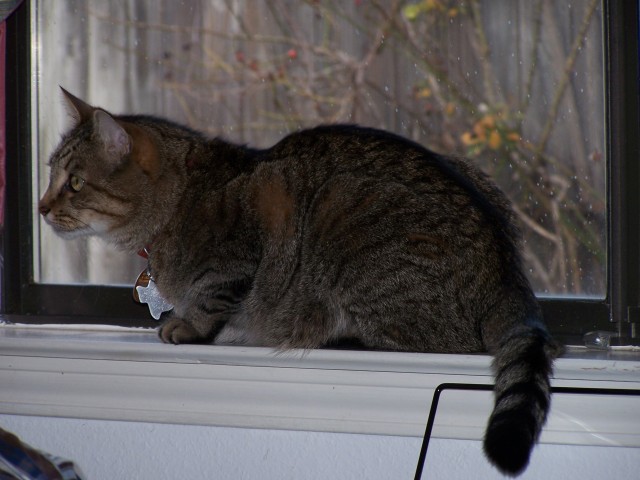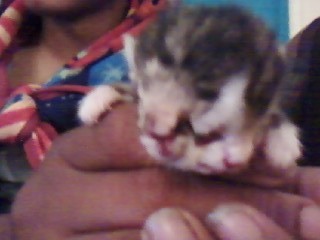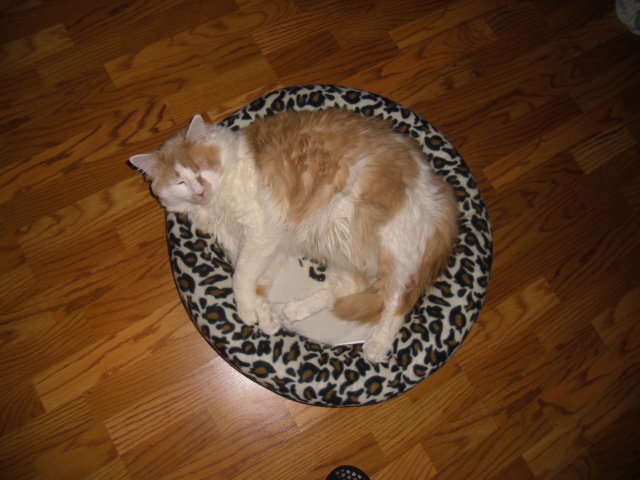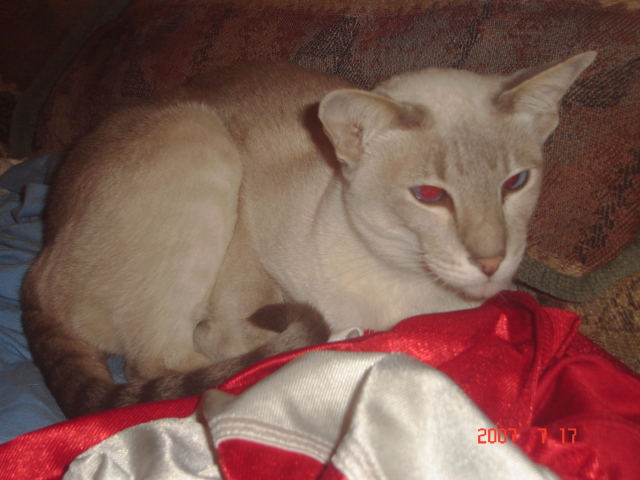QuestionQUESTION: We have a 7 month old kitten. She has seemed a bit quiet for few days and have been concerned that she is not growing and putting on weight at rate expected for her breed. We gave her a drontal worming tablet in the morning and then at lunchtime she seemed more depressed so took her to the vet. Vet did some neuro tests and took blood. Was concerned about her weight and decided to keep her for a few hours. When we took her home she stumbled out of the basket and has been unable to walk properly since or hold her head straight. She walks like she is drunk and falls over. No vomiting, no diaroah, eating normally,no fever, bloods normal but took her back to vet and he thinks she has FIP and wants to put her to sleep. I am not convinced as apart from initial lethergy she doesnt show any other symptoms of it.
ANSWER: Hi Vicki,
I'm so sorry to hear about your little one! What a difficult time you're going through.
I would have to agree that all of the symptoms you've listed sound just like FIP. The failure to grow at a normal rate is a very classic sign. The neurological problems are classic signs. The lethargy is another common sign. These are typical with the "dry", or non-effusive, form of FIP. This is trickier to diagnose than the "wet", or effusive, form, which causes an accumulation of fluid in the belly area.
Nevertheless, since the kitten doesn't have a fever and she's eating normally, it would seem to me that she isn't suffering, and you have some time to make a decision. I also think I would ask the vet to treat for toxoplasmosis, even if you had tests run for this and they came back negative. Symptoms of toxoplasmosis can be similar to FIP, but toxo can be cured with clindamycin. There are tests for toxo, but because the disease can go into a dormant stage where it can be nearly impossible to detect, there can be false negative test results. If your kitten improves vastly on clindamycin, it's pretty safe to assume toxoplasmosis was the culprit. However, if she does not improve, I think FIP is very likely to correct diagnosis.
Kittens with FIP can sometimes have an improved quality of life when placed on prednisone. This can help suppress the immune response which is the cause of FIP, and reduce the body-wide inflammation that has them feeling poorly. Also, because many of them have low white blood cell counts as the disease progresses, many vets place them on prophylactic antibiotics. Unfortunately, these treatments typically only buy time.
I'm sorry you're facing such an apparently serious disease at such a young age. I certainly think that if your kitten develops a fever, stops eating, or her neurological signs start to worsen (she starts to have seizures, etc.), then the kindest choice would be to put her to sleep. FIP is the worst disease of them all.
Best of luck to you.
Jessica
---------- FOLLOW-UP ----------
QUESTION: Hi Jessica, thank you for your prompt response. I guess I was hoping for better news particularly as the stumbling and falling came on suddenly after taking her to the vet. We thought that maybe she had had a stroke. On saturday the vet gave her a mssive steriod dose and some antibiotics which seem to have made a little improvement, she has lost the blank stare that she had and is a bit more alert but if it is likely FIP then I guess we are just putting off the inevitable as she still isn't walking around much except to get food and she has lost her meow. My concern now is that I have 3 other cats and what the outlook is for them? I understand that this is quite rare but is it likely the other cats will develop it too. They range in age from 6-12. We may also consider in the future getting another kitten, so do you think if one of the other cats is now a carrier that the new kitten would be anymore at risk or would we be extremely unlucky for it to occur again.
AnswerSadly, the neurological signs of FIP often come on in an instant, and that's what makes the disease so hard for us to grasp. I remember my first case of it, almost 15 years ago. The kitten hopped onto a counter to eat his dinner, perfectly fine, then suddenly stepped off of it, completely blind. Like you, I searched for every answer, because the disease just didn't make sense. He had seemed so healthy - how could he be terminally ill? I certainly wish there would be a better diagnosis for your kitten. You might look into vestibular disease, which will usually pass on its own in a couple of weeks, but most often, there will be some tell-tale back and forth movements of the eyes with this condition.
As far as how contagious it is, it's unlikely that your other cats will be affected. FIP infects kittens almost exclusively, or cats who have other diseases that suppress the immune system. Geriatric cats can also be more susceptible, but I still think your oldest one should probably be safe. In all my cases, no cats over the age of 10 months have become infected unless they had another condition that weakened the immune system (the feline leukemia or feline AIDS viruses).
It is possible for cats to become carriers of the corona virus that later causes FIP for some time, though this is not thought to be very common. Generally, cats get rid of this virus within a few short weeks. In fact, by the time they develop FIP, it is generally agreed that they are no longer shedding the virus in any meaningful amount. This is because the virus does not cause FIP until it migrates outside the intestines and into the abdominal lining (called the peritoneum). Here, it's trapped and unable to shed in the feces, but it causes serious disease in the body.
Personally, I would wait to get another kitten for at least six months to try to ensure the corona virus is gone from your home. As long as none of your other cats get sick, chances are very minimal that another kitten you bring home would become infected.

 Cat gets angry at tail
Question
Rascal Rasputin
My indoor adult cat seems to g
Cat gets angry at tail
Question
Rascal Rasputin
My indoor adult cat seems to g
 Killing Fleas on Persians
Question
Chloe Ruth
I simply cannot kill off the
Killing Fleas on Persians
Question
Chloe Ruth
I simply cannot kill off the
 my cat had a kitten with one head and part of another with a mouth and has not nursed since she was born.
Question
my newborn kitten
my cat delivered a female ki
my cat had a kitten with one head and part of another with a mouth and has not nursed since she was born.
Question
my newborn kitten
my cat delivered a female ki
 Cats Fighting
Question
Big Cat
Hello.i have a cat named lucky.he is a
Cats Fighting
Question
Big Cat
Hello.i have a cat named lucky.he is a
 Siamese tracks feces around the house
Question
Dirty Foot
I recently adopted a wonderf
Siamese tracks feces around the house
Question
Dirty Foot
I recently adopted a wonderf